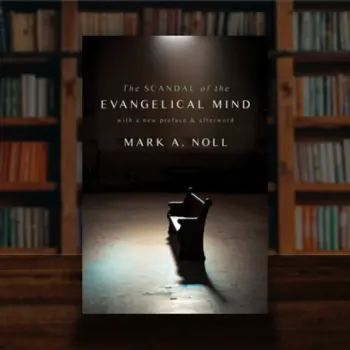It was sunny and warm today in Texas without a snow cloud in sight. I wore short sleeves and left all my coats and scarves at home. And, most importantly, I didn’t have to worry about slipping on a sludgy sidewalk. For me, a native Texan, the almost 80-degree weather was a relief after spending 4 days in snowy Denver at the 2017 joint conference of the American Historical Association and American Society of Church History.
Regardless of the weather or even the location, attending conferences like the AHA and the ASCH is a necessity for most of us in academia. Indeed, I am a strong proponent of conferences. I have written in the past about how useful conferences are for networking, both in regards to jobs and research. I still argue that, if you take advantage of the networking opportunities available at conferences, your paper does not have to be the most important part of your experience.
But that doesn’t mean you should ignore your paper either. It may not be the most important part of your experience, but your paper presentation can still affect your scholarly reputation in important ways.
Let me explain.
Most of us, when thinking about how to give a good conference paper, focus on the research, the historical conversation to which we are contributing, the questions we might get asked, and the scholars we might offend in the audience. After sitting through several sessions this past weekend, however, I think perhaps our priorities are skewed. Perhaps we should start paying at least as much attention to how we present our papers as we do to how we research our papers.
Most of us know how to build a solid paper based on good evidence. Most of us don’t struggle with making a logical argument. Our academic training teaches us to do this. What we struggle with is the presentation of that argument. Unfortunately this seems to be a lesson our academic training often overlooks (or perhaps a lesson we simply ignore). But I don’t care how original an argument is or how groundbreaking the evidence on which it is built; if the presentation is bad, no one will remember its brilliance. Instead what people will remember is how many times they checked their watch during the session…..
So what can we do to make the presentation of our papers better?
- Read the paper out loud before the conference. Seriously. This is so easy to do and so many people don’t do it. Sentences sound different when you read them out loud. Long, convoluted sentences are difficult to follow when heard (just listen to a colleague read a passage from almost any monograph out loud, and you will immediately understand what I mean). We speak differently than we write. Write a conference paper for the oral event it is. For example, don’t fill your paper with block quotes from other scholars. Summarize their point in a pithy paraphrase or short quote, and move on. Also remember that people can’t look back to the previous page to remember what you said. So remind them of your argument throughout the paper. Remind them of why a piece of evidence is important. You do not want your audience to leave without understanding what you were saying. If they disagree with you, that is fine. The point is to have scholarly conversation–but the audience has to follow an argument in order to engage with it.
- Speak loudly. Speak clearly. Make eye contact often. Just doing these three things will help keep your audience engaged and help them leave with a more positive impression of you.
- Write the actual paper that you will read. I have no idea who started the trend of bringing a 40 page seminar paper to “cut” on the spot during a presentation. I have never seen this go well. The speaker loses track of her place, runs over time, and/or never really makes a coherent argument. If you want to use a larger work as the basis of a conference paper, that is great. But condense it in advance! Pu
 ll your argument from the paper. Choose your best 2-3 examples to support it, explain clearly why it matters, and paste it into 7-8 double-spaced pages. This is a much better and much more professional way to turn a seminar paper or book chapter into a conference paper.
ll your argument from the paper. Choose your best 2-3 examples to support it, explain clearly why it matters, and paste it into 7-8 double-spaced pages. This is a much better and much more professional way to turn a seminar paper or book chapter into a conference paper. - If you are a commentator or part of a round table, prepare your comments in advance (hopefully you are noticing a theme here….). Very few people are able to stay on track and not ramble without prepared comments. You might be the exception to this, but I seriously doubt it.
- Finally, do not go over time. Let me say that again. Do not go over time. You are on a panel which means you have 15-20 minutes to present. Other people are on that panel too. If you go over time, you are stealing their time. It is rude. It makes you look like a bad colleague–you think your work is more important than the other scholars in your session. It annoys the people in your audience who will stop listening to your brilliance and start wondering when you are going to shut-up. If you take none of my other advice. please take this. It takes 2ish minutes to read one double-spaced page. 8 pages is approximately 16 minutes. If you are on a 15 minute panel, write 6-7 pages. If you are on a 20 minute panel, write no more than 8-9 pages. Most people take longer to read a paper in a session than they do in practice (often because of ad-lib). So when you practice, your paper should come under time. If it doesn’t, cut. The best conference sessions allow time for conversation. If all the papers go long, the audience can’t engage and one of the most beneficial aspects of presenting at conferences–receiving useful feedback from academic peers–is lost. Please, please stay within the time limit given for your paper. It is such an easy way to make a good impression.
There are lots of things we can’t control about academic conferences (like the weather). But we can control how we present our papers. A solid argument presented in a clear, well-spoken way that stays within the time-limit will make a far better impression than a brilliant argument presented by a mumbler droning on for 45 minutes.
Trust me on this.














